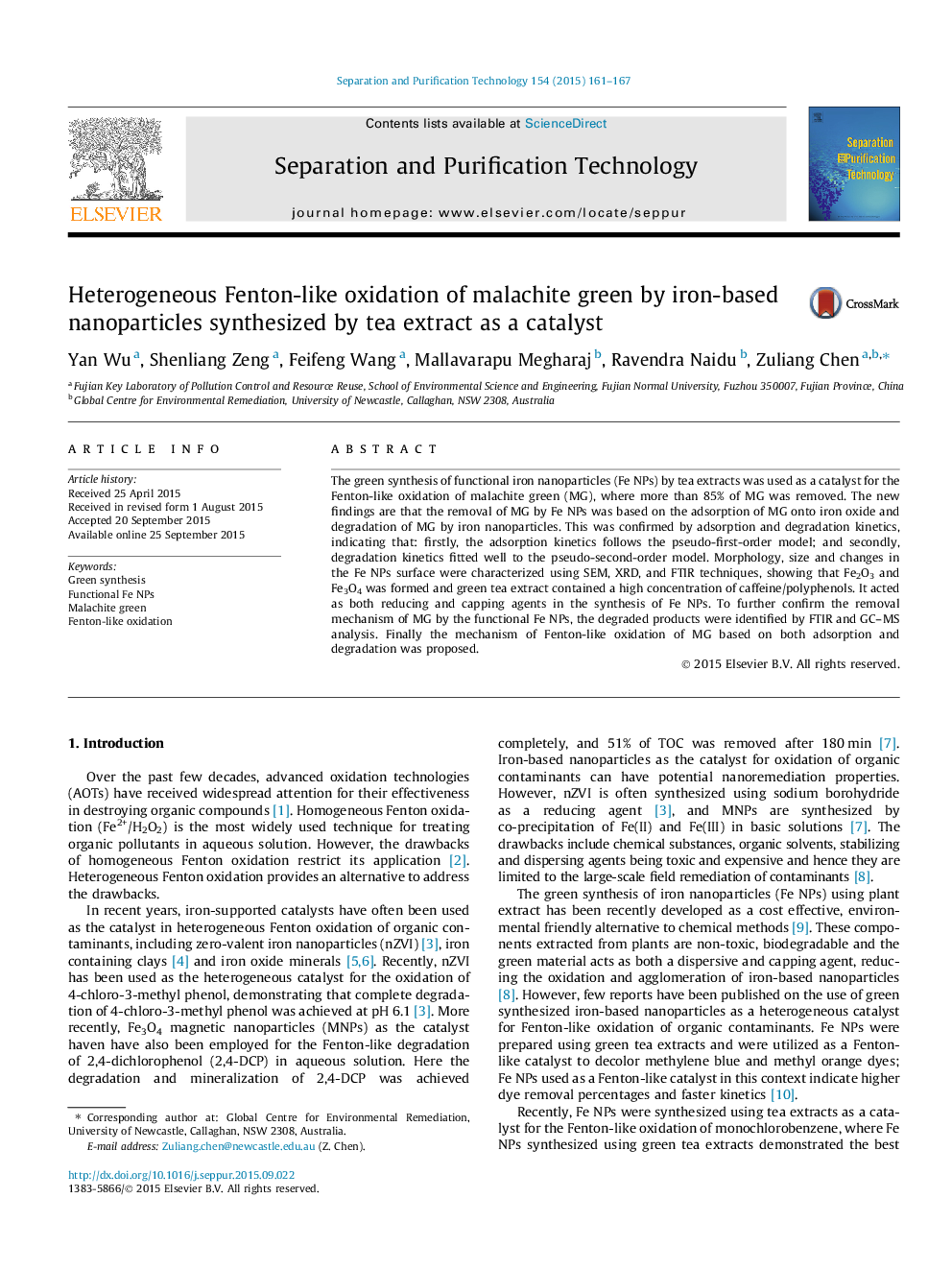| کد مقاله | کد نشریه | سال انتشار | مقاله انگلیسی | نسخه تمام متن |
|---|---|---|---|---|
| 640307 | 1456965 | 2015 | 7 صفحه PDF | دانلود رایگان |
• Functional iron-based nanoparticles (Fe NPs) were synthesized by tea extract.
• Fe NPs was used as a catalyst for Fenton-like oxidation of malachite green (MG).
• The removal of M using Fe NPs was based on the adsorption and degradation.
• The findings provide the insight of nanoremediation with green method.
The green synthesis of functional iron nanoparticles (Fe NPs) by tea extracts was used as a catalyst for the Fenton-like oxidation of malachite green (MG), where more than 85% of MG was removed. The new findings are that the removal of MG by Fe NPs was based on the adsorption of MG onto iron oxide and degradation of MG by iron nanoparticles. This was confirmed by adsorption and degradation kinetics, indicating that: firstly, the adsorption kinetics follows the pseudo-first-order model; and secondly, degradation kinetics fitted well to the pseudo-second-order model. Morphology, size and changes in the Fe NPs surface were characterized using SEM, XRD, and FTIR techniques, showing that Fe2O3 and Fe3O4 was formed and green tea extract contained a high concentration of caffeine/polyphenols. It acted as both reducing and capping agents in the synthesis of Fe NPs. To further confirm the removal mechanism of MG by the functional Fe NPs, the degraded products were identified by FTIR and GC–MS analysis. Finally the mechanism of Fenton-like oxidation of MG based on both adsorption and degradation was proposed.
Journal: Separation and Purification Technology - Volume 154, 5 November 2015, Pages 161–167
